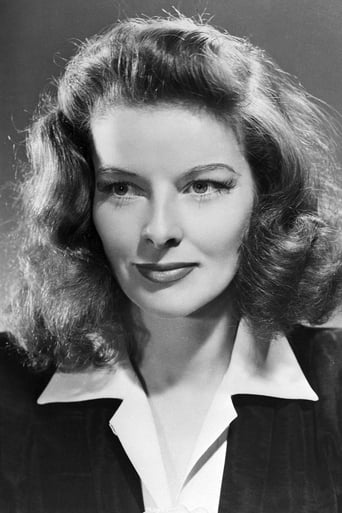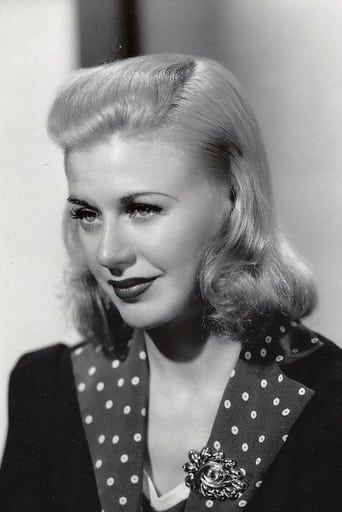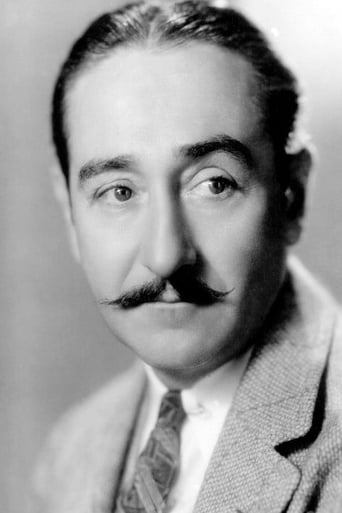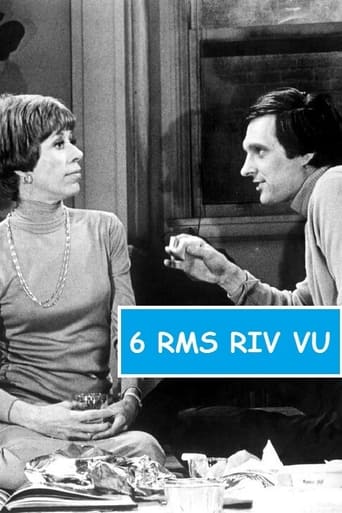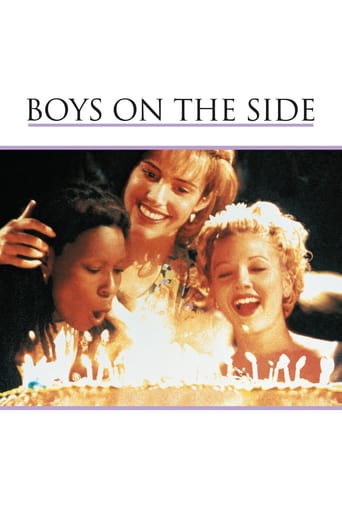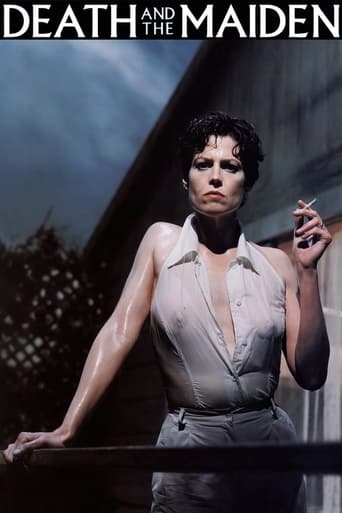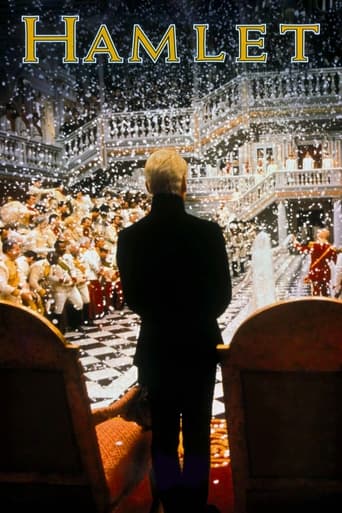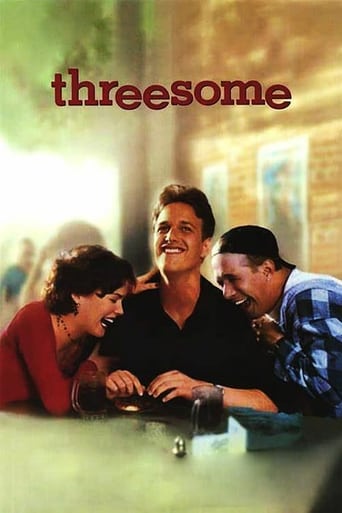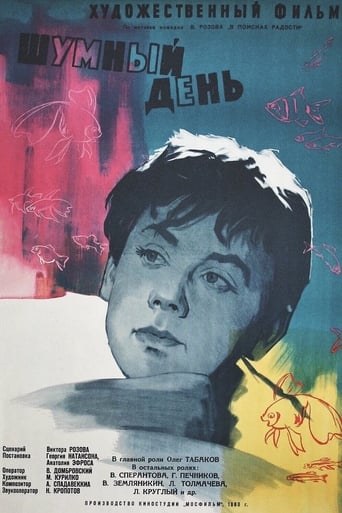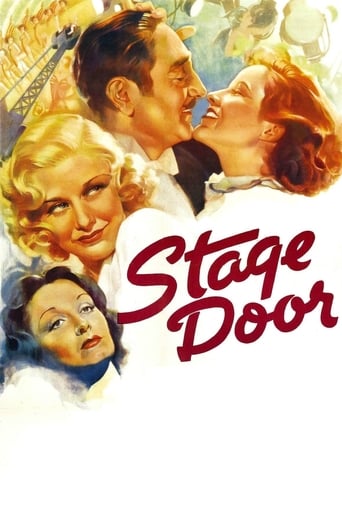
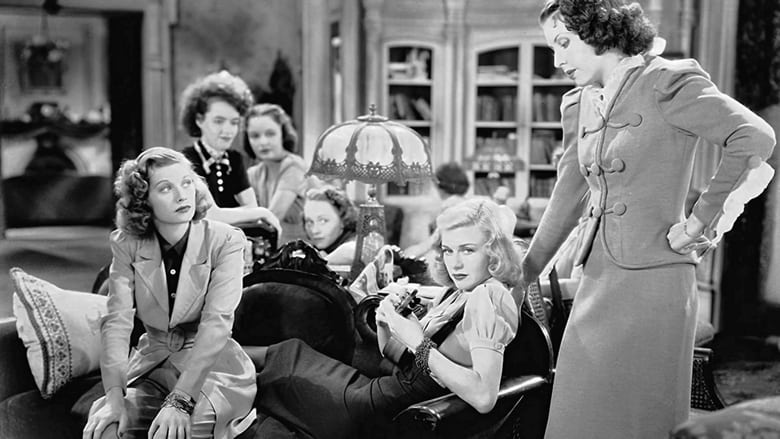
Stage Door (1937)
The ups and downs in the lives and careers of a group of ambitious young actresses and show girls from disparate backgrounds brought together in a theatrical hostel. Centres particularly on the conflict and growing friendship between Terry Randall, a rich girl confident in her talent and ability to make it to the top on the stage, and Jean Maitland, a world weary and cynical trouper who has taken the hard knocks of the ruthless and over-populated world of the Broadway apprentice.
Watch Trailer
Cast
Similar titles
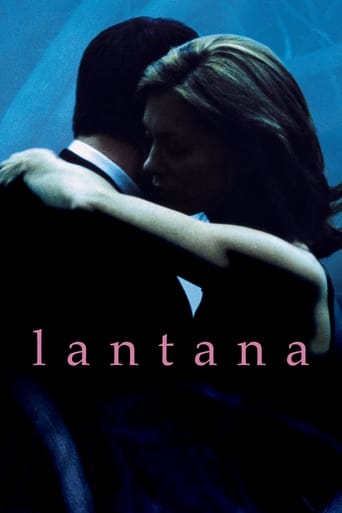
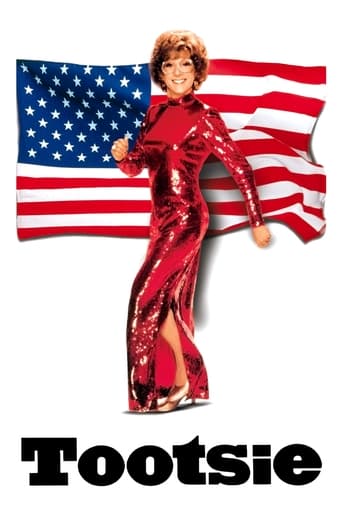
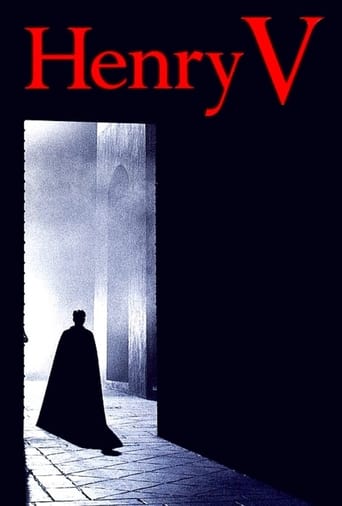
Reviews
Touches You
One of my all time favorites.
what a terribly boring film. I'm sorry but this is absolutely not deserving of best picture and will be forgotten quickly. Entertaining and engaging cinema? No. Nothing performances with flat faces and mistaking silence for subtlety.
The film may be flawed, but its message is not.
Gregory La Cava directed this comedy/drama that stars Katharine Hepburn as rich socialite Terry Randall, who has dreams of breaking onto Broadway as an actress without the assistance of her father, who nonetheless has plans to back a play she may appear in... Ginger Rogers plays Jean Maitland, who is interested in a play directed by a notorious womanizer(played by Adolphe Menjou) that she isn't interested in romantically ...Lucille Ball also stars as another of the many women staying in the all girls theatrical boarding house. Mediocre film is passable,and more successful as comedy than drama, with both Rogers & Ball more interesting than Hepburn!
Framed and shot as though a stage play which it was originally, but much changed for the film and with a stage play within the staged play, le tout ensemble in this witty farce delivers a virtual non-stop, wise-cracking, virtuoso performance. Timing is everything and in comedy, it's particularly so; and the director, Gregory La Cava who cut his teeth, in the silent era, as a director beginning in 1916 doesn't miss a beat with this one.From a play by Edna Ferber (of Giant fame) and George S. Kaufman, the film tells the story of what happens to a group of aspiring actresses who happen to board at a place called the Floodlights Club in New York City, supposedly. Of course, there are minor players, as in all plays Lucille Ball, Eve Arden, Ann Miller and most of the men, the exception being Adolphe Menjou as a caricature (almost) of the Big Bad Producer of those days. The majors, Katharine Hepburn (as Terry), Ginger Rogers (Jean), Gail Patrick (Linda) and Andrea Leeds (Kay) form the core about which this story revolves.Which, when all is said and done, is about the ascendancy of Terry as an actress and the decline of Kay as another: out with the old, in with the new, if you will. That would tend to make for a somewhat pedestrian story if it were simply that. Happily, what sets this apart from, say, the almost maudlin characterization by Hepburn in Morning Glory (1933) in a similar situation (for which, however, she did receive a Best Actress award in 1934), is, first, the scintillating dialog. Which means the viewer must really listen: it goes so quickly between characters that you'll miss the one-liners and sight gags if you take a chomp on a sandwich or sip of coffee, or whatever. So, be prepared.What's left? Well, of course, the great acting by Hepburn, Rogers, Ball, Miller, Menjou, Arden, Patrick and Leeds, the latter getting a Best Supporting nomination for her somewhat overly tearful acting; so much so, she reminded me of Olivia de Havilland, in looks and style.The direction, already mentioned, is in the hands of an old hand and it shows, explicitly. Add to that the camera work that included almost manic cuts up and down stairs, superb face-on tracking shots and perfect timing while up to a dozen people would mill about in the frame concurrently and with dialog. Confusing? Perhaps to some. Just concentrate on the majors.What's more interesting for me, however, is the sub-text of this comedy. Made just before USA finally shook free of the Great Depression, as you listen, you'll hear many references to the hard times: at the Floodlights, everybody is down, but not out; rich and unscrupulous producers just want to use and abuse actresses; the women are all scraping for even the lowliest acting or dancing job at the meanest of wages; despondency and depression are endemic. Despite all of that, the women 'soldier' on, pushing themselves to their emotional and physical limits.Women in the audience at that time must have felt the pull: don't deny your dreams of self-fulfillment, despite what chauvinistic clods of men might say and do, even powerful men. It's a stirring message, albeit idealistic, but it sets the tone for the larger section of a country that was about to engage in the world war which, in a very real sense, changed the role of women as never before. So, some may die, yes, but the show must go on...There have been a number of introspective and self-referential films about the acting business, Morning Glory being the earliest I've seen. Others include A Star is Born (made and remade many times), All About Eve (1950) arguably the best, I think The Dresser (1983), The Player (1992), and others, but all heavy dramas. So, it's refreshing to find a gem that's prepared to treat the matter lightly, more rather than less.A final thought: it must have been fun for the actors to act at being actors; it's even more fun to know that the director used much of the banter between the women off-camera to actually use in the film much to the playwrights' displeasure, so I understand.Recommended for all.
Far more than George Cukor's vitriolic femme-extravaganza, "The Women", this 1937 ensemble dramedy shows how vital women were during Hollywood's golden era, especially when they are not relegated to stoic wife roles or placed purely in adversarial positions. Following up on his 1936 screwball classic, "My Man Godfrey", director Gregory LaCava guides a Grade-A cast made up primarily of fresh-faced actresses, many of whom went on to create legendary careers of their own. Speaking the laser-sharp dialogue provided by Morrie Ryskind and Anthony Veiller (fluidly adapting the original play by Edna Ferber and George S. Kaufman), the ensemble fills in the distinctive characters with intelligence and enthusiasm. Even though the storyline creaks a little seventy years later, this still holds up as a genuine cinematic classic.Mostly set in a ramshackle boarding house one could assume was modeled after Manhattan's Barbizon Hotel for Women, the story focuses on the women living there, all aspiring actresses who bond amid failed auditions and non-existent callbacks. It's an unacknowledged sorority house with a den mother and an assortment of theatrical archetypes milling about. At the outset, the alpha female is Jean Maitland, a dancer whose cynical wisecracks mask an unflagging pride in her talent and integrity. Complications ensue when she is made to room with the new girl, Terry Randall, a self-confident debutante whose patrician airs alienate almost everyone around her. Terry is determined to make it on her own as an actress, but once word gets to producer Anthony Powell that she is the daughter of a wealthy investor, she gets cast in the starring role of a drawing room weepie called "Enchanted April". Unfortunately, that's the role desperately desired by Kay Hamilton, another actress in the house. Kay impressed critics a year prior, but she hasn't had any luck in replicating that success. Of course, once Terry lands the part, she is disastrous in rehearsals until a tragedy occurs. The last part of the movie is played out as pure melodrama, but it works in deepening our affections for the characters involved.As Jean, an Astaire-less Ginger Rogers expertly zings with abandon and grounds the film with her no-nonsense manner. Katharine Hepburn, although playing a blueblood variation of the same actress she played in "Morning Glory", has the comparatively tougher role as Terry since her character's priggishness must give away to a revelation of humanism. She manages the conversion expertly and parries gleefully with the always-ready Rogers in the movie's best scenes. Adolphe Menjou has the right gruff spirit as the pompous Powell, though he seems a bit weathered to get away with his ladies'-man shenanigans. In very early roles, Lucille Ball, Eve Arden and Ann Miller show off the unique talents that would soon bloom. Arden, in particular, delivers her scabrous lines with devastating wit. In roles that perfectly reflected their screen personas, Gail Patrick plays the nasty Linda with the same venom she spewed as Carole Lombard's talon-bearing sister in "My Man Godfrey", while Constance Collier brings out all the vainglorious pomp in Terry's aging mentor.The standout at the time was Andrea Leeds' poignant turn as Kay. A sharp actress who would retire within a few years of this film, Leeds is the only one who doesn't get any funny lines and consequently is made to come across as an oversensitive albeit beloved wet rag. However, she makes the most of her last scene to powerful effect. The 2005 DVD has a reasonable though not outstanding print of the aged film. Other than the theatrical trailer, there are just two extras. The first is a silly, twenty-minute musical short from 1937 called "Ups and Downs" about an enterprising elevator operator who tap dances. It stars a bleached blonde, baby-faced June Allyson in her film debut and features an almost-as-young Phil Silvers as a manic tailor. The more interesting extra is a condensed radio production of "Stage Door" with Rogers and Menjou repeating their roles and Rosalind Russell taking over for Hepburn and Arden taking over for Patrick.
Terrific cast in middling comedy-drama adapted from the play by Edna Ferber and George S. Kaufman concerning would-be actresses living in a New York boarding house, each vying for parts on the Great White Way. Katharine Hepburn's solid performance as a socialite trying to make it on her own merits is the acting highlight here, and her bits alongside roommate Ginger Rogers are sharp and funny. Andrea Leeds received a Supporting Oscar nomination for her effective work as a troubled young woman who can't seem to find a job, but Adolphe Menjou keeps popping up as if he were the only show-producer in the city. On the whole, only marginal, but certainly worth a look for that female ensemble, which includes Lucille Ball, Ann Miller and the incomparable Eve Arden, who might have benefited from more scenes. *** from ****
